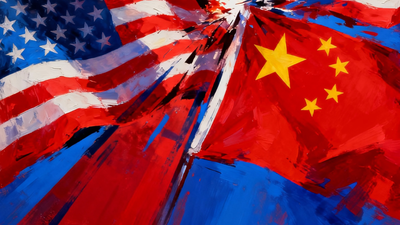China on Tuesday positioned itself as an option for open markets and regional cooperation, signing an upgraded free trade pact with the Association of Southeast Asian Nations (ASEAN) while taking a veiled swipe at US President Donald Trump’s protectionist stance.Premier Li Qiang said the new pact — the ASEAN-China Free Trade Area 3.0 — highlighted Beijing’s commitment to economic openness, in contrast to Washington’s tariff-heavy approach. “Pursuing confrontation instead of solidarity brings no benefit,” Li said at the ASEAN-China summit, invoking President Xi Jinping’s earlier remark that “unity is strength”, as quoted by AP.The revised agreement expands the original 2002 pact implemented in 2010, covering a market of more than 2 billion people. It includes provisions for digital trade, green transition projects, and support for small and medium enterprises, aimed at deepening regional integration and supply chain resilience.Trade between China and Asean has surged from $235.5 billion in 2010 to nearly $1 trillion last year, making the bloc China’s largest trading partner. “We are good neighbours and good brothers, close in geography, culture and sentiment,” Li said, urging ASEAN states to “resist external interference and unreasonable tariffs.”But the emphasis on partnership met a cautious note from Philippine President Ferdinand Marcos Jr., who said cooperation must be rooted in trust. “This cooperation cannot exist alongside coercion,” Marcos said, alluding to China’s assertive actions in the South China Sea.The agreement was signed in the presence of Li and Malaysian Prime Minister Anwar Ibrahim, who chaired the summit. Anwar later stressed Asean’s “balanced approach” in engaging both the US and China, saying the bloc aimed to avoid taking sides amid escalating global trade rivalries.The deal was announced just as Trump unveiled new economic arrangements with several ASEAN countries, though existing tariffs on Chinese goods remain in place — a move analysts said highlighted Washington’s continued hard line.Political analyst Bridget Welsh said the pact “reflects a broader trend of non-US economies hedging by building stronger intra-regional ties,” especially in areas such as sustainability and technology.Marcos reiterated Manila’s concern over Chinese activities in disputed waters, including plans for a marine reserve, and pledged to advance Code of Conduct talks during the Philippines’ upcoming ASEAN chairmanship.Chinese foreign ministry spokesperson Guo Jiakun accused the Philippines of “provocative actions,” while regional observers urged separating territorial issues from economic cooperation.








